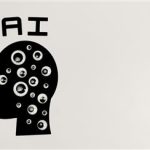
Introduction
The future of work is being profoundly shaped by automation and artificial intelligence (AI), driving significant changes across various sectors of the economy. As technological advancements accelerate, businesses and workers alike are grappling with the implications of these changes. Automation and AI are not only transforming job roles and industry practices but are also influencing economic structures and societal norms. This essay explores the impact of automation and AI on the economy, examining their benefits, challenges, and the strategies necessary for navigating this transformative era.
The Rise of Automation and AI
Defining Automation and AI
Automation refers to the use of technology to perform tasks that were previously carried out by humans. It includes robotics, software automation, and various other technologies designed to increase efficiency and reduce manual labor. Artificial Intelligence (AI), on the other hand, involves creating systems that can perform tasks requiring human-like intelligence, such as learning, reasoning, and problem-solving. AI encompasses machine learning, natural language processing, and computer vision, among other technologies.
Key Drivers of Change
- Technological Advancements: Rapid advancements in computing power, data analytics, and machine learning algorithms are driving the proliferation of automation and AI technologies. Enhanced capabilities in these areas have made it possible to automate increasingly complex tasks.
- Economic Pressures: Businesses are adopting automation and AI to remain competitive, reduce costs, and improve productivity. The pursuit of efficiency and profitability is a significant driver behind the adoption of these technologies.
- Labor Market Dynamics: Changing labor market dynamics, including skill shortages and the need for higher productivity, are encouraging the integration of automation and AI. Organizations are leveraging these technologies to address workforce challenges and adapt to evolving market demands.
Impact on the Economy
Transformation of Job Roles
- Job Displacement: Automation and AI are displacing certain job roles, particularly those involving repetitive and manual tasks. Industries such as manufacturing, logistics, and customer service have seen significant changes, with routine jobs increasingly being performed by machines.
- Job Creation: While some jobs are being displaced, new roles are being created in response to technological advancements. Positions related to AI development, robotics maintenance, and data analysis are in high demand. Additionally, the need for roles in tech support, cybersecurity, and digital marketing is growing.
- Skill Shifts: The nature of required skills is evolving, with a greater emphasis on technical and digital skills. Workers need to acquire new competencies to stay relevant in the changing job market. Skills such as coding, data analysis, and machine learning are becoming increasingly important.
Economic Efficiency and Growth
- Productivity Gains: Automation and AI enhance productivity by streamlining processes, reducing errors, and increasing operational efficiency. Businesses that integrate these technologies can achieve higher output with fewer resources, contributing to overall economic growth.
- Cost Reduction: By automating routine tasks and processes, businesses can reduce labor costs and operational expenses. This cost reduction allows for reinvestment in other areas of the business, such as innovation and market expansion.
- Innovation and Competition: Automation and AI drive innovation by enabling new business models and services. Companies that embrace these technologies can gain a competitive edge, fostering a culture of innovation and technological advancement.
Challenges and Considerations
- Economic Inequality: The benefits of automation and AI are not evenly distributed, leading to concerns about economic inequality. High-skilled workers and tech-savvy individuals may benefit from new opportunities, while low-skilled workers face the risk of job displacement and reduced earning potential.
- Job Polarization: The labor market is experiencing job polarization, where middle-skill jobs are being automated, leading to a concentration of high-skill and low-skill jobs. This polarization can exacerbate income inequality and limit upward mobility for certain workers.
- Ethical and Social Implications: The widespread adoption of automation and AI raises ethical and social concerns, including privacy issues, bias in AI algorithms, and the impact on worker rights. Addressing these concerns is crucial for ensuring that technological advancements are implemented responsibly.
Adapting to the Future of Work
Strategies for Businesses
- Investing in Technology and Training: Businesses should invest in technology and employee training to leverage the benefits of automation and AI. Providing training programs and upskilling opportunities helps employees adapt to new roles and technologies.
- Redesigning Work Processes: Businesses can redesign work processes to integrate automation and AI effectively. By re-evaluating workflows and identifying areas for automation, organizations can optimize operations and enhance productivity.
- Fostering Innovation and Collaboration: Encouraging a culture of innovation and collaboration can help businesses stay competitive. By fostering a collaborative environment where employees and technology work together, companies can drive innovation and adapt to changing market conditions.
Strategies for Workers
- Continuous Learning and Upskilling: Workers should engage in continuous learning and upskilling to stay relevant in the evolving job market. Pursuing certifications, attending workshops, and gaining experience in emerging technologies can enhance career prospects.
- Embracing Flexibility: Adapting to a changing job market requires flexibility and a willingness to explore new career opportunities. Workers should be open to transitioning into new roles and industries that align with their skills and interests.
- Leveraging Soft Skills: In addition to technical skills, soft skills such as problem-solving, communication, and creativity are valuable in the future of work. Developing these skills can complement technical expertise and enhance employability.
Policy and Regulatory Considerations
- Education and Training Programs: Governments and educational institutions should develop and support education and training programs that align with the demands of the future job market. Investing in STEM education and vocational training can help prepare the workforce for emerging roles.
- Social Safety Nets: Implementing social safety nets, such as unemployment benefits and retraining programs, can provide support for workers affected by automation and job displacement. Ensuring access to resources and assistance helps mitigate the impact of economic transitions.
- Ethical Guidelines and Regulations: Establishing ethical guidelines and regulations for the development and use of AI and automation is essential for addressing privacy, bias, and fairness concerns. Collaborative efforts between policymakers, businesses, and technology developers can promote responsible technology adoption.

The future of work is being reshaped by automation and AI, presenting both opportunities and challenges for the economy. While these technologies drive economic growth, productivity gains, and innovation, they also raise concerns about job displacement, economic inequality, and ethical implications. To navigate this transformative era effectively, businesses, workers, and policymakers must adopt proactive strategies that embrace technological advancements while addressing associated challenges.
By investing in technology, upskilling, and fostering innovation, businesses and workers can adapt to the changing job market and thrive in the evolving economy. Additionally, supportive policies and ethical considerations play a crucial role in ensuring that the benefits of automation and AI are equitably distributed and that the future of work is inclusive and sustainable.
As we move forward, understanding and addressing the impact of automation and AI will be key to shaping a future of work that is both productive and equitable. Embracing these changes with a strategic and informed approach will enable individuals and organizations to harness the potential of technology while navigating its complexities effectively.



